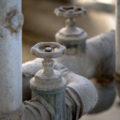Spring, with flowers and colors, has also brought with it the uncomfortable seasonal allergies.
The allergy is a response of our immune system to allergens in the air, in food, in drugs or in substances. These are generally harmless, but our body starts to produce an excessive number of antibodies causing mild and non-mild reactions.
In addition to the advice to keep well cleaned the rooms where we spend our days, between home and work, so as to have as few dust mites and dust as possible, it is not recommended to ventilate during the day for pollen, preferring early morning or late evening, when the concentration of pollen in the air is lower.
How to recognize allergic rhinitis? In reality, it may look like a simple cold.
- Nasal congestion
- Itchy eyes
- Sneezing and coughing
- Itching nose, palate and/or throat
- Puffy eyes and dark circles
- Tiredness and weakness
- Impairment of taste and smell
Even if it is not a real health threat, being allergic can bring some difficulties in everyday life.
For allergy sufferers, the most commonly used solution to alleviate symptoms is certainly the use of antihistamines, but these must still be used in moderation and for a limited time.
The goal of treating allergic rhinitis is to prevent or reduce the symptoms. This is why at the AbanoRitz the inhalation therapies are traditionally a true panacea, patented at a European level, approved and recognized by the Italian national health system. The thermal waters of the Euganean area not only restore the normal functions of the respiratory system, but they also protect the mucous membranes from any relapses.
According to various researches of the Pietro d’Abano Thermal Study Centre, a considerable and incisive influence of the salty-bromine-iodine thermal water on chronic inflammatory processes has been highlighted.
At the AbanoRitz we have a thermal cures department that provides treatments with inhalations, aerosols, nasal irrigations/drops and endotympanic insufflations.










